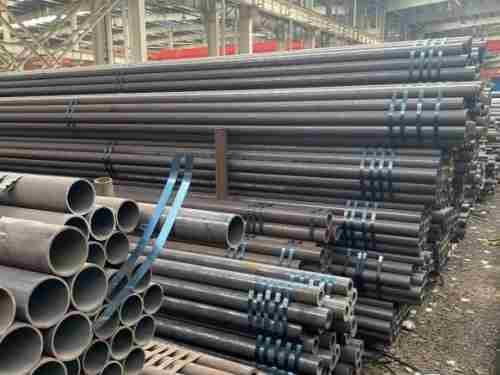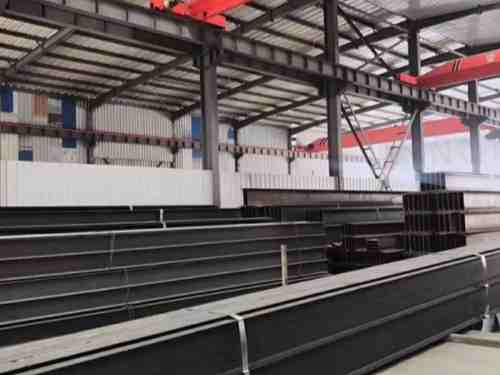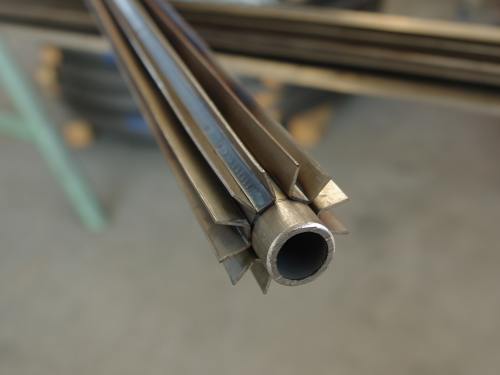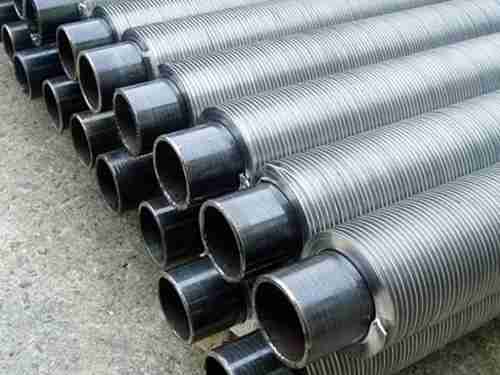High Pressure S335 A335 P91 P22 P36 Alloy Seamless Steel Pipe for Boiler Heat Exchange
We can state with absolute certainty that for such quality at such prices we are the lowest around for . We welcome guests from all over the world to visit, guide and cooperate sincerely with the principle of being honest and frank, and with a sincere and trustworthy style of doing things. We do the most pragmatic enterprise, continue to develop new products, constantly improve product quality, enhance the durability of products, and offer high quality and low price products to customers.
A335 P9 Alloy Steel Pipe ASTM A335/ASME SA335 Gr. P5, P9, P11, P22, P91
Standard: ASTM A335
grade:P1, P2,P5,P9,P11,P91,P92
OD:10.3-660mm
WT:1.6-60mm
Length:5.8m-12m or random legth
Technical: Quenching & Tempering
Application: Gas fire power plant, coal fire power plant, headers and steam lines, Feedwater pipes, superheaters, and reheaters.
A335 P9 Alloy Steel Pipe that covers “chrome-moly” seamless pipes with remarkable resistance to corrosion and good tensile strength at high-temperature service. Generally, ASTM A335 P11, P22, and P91 pipes are used in power generation and downstream oil and gas, P5 and P9 grades are for refinery applications.
How to define alloy pipes?
Alloy pipes are tubular with higher percentages, than standard carbon steel pipes, of alloying elements as Molybdenum (Mo), Chromium (Cr), Nickel, etc. Actually, the ASTM A335 covers “low-alloy” steel pipes, i.e. pipes that have a total amount of alloying elements below 5%. The addition of higher percentages of alloying elements (for example Nickel and Chromium) transforms the steel into higher alloys, like stainless steel, duplex, up to super-alloyed materials like Inconel, Hastelloy, Monel, etc.
Alloy steel pipes are used in the energy industry for high temperature and very low-temperature service (cryogenic), or applications with very high pressures.
Alloying elements
The addition of Molybdenum (“Moly”) increases the strength of the steel and its elastic limit, enhances the steel resistance to wear, its impact qualities, and the hardenability. It also improves the resistance to softening, makes chromium steel less prone to embrittlement, and prevents pitting.
Chromium, a key element also for stainless steel alloys, prevents steel oxidation at elevated temperatures and increases the resistance of steel to corrosion. It enhances the tensile, yield, and hardness properties of low-alloy pipes at room temperatures.
Other alloying elements, present in various degrees in pipes of all grades are:
1. Aluminum: decreases oxygen from steelmaking
2. Boron: used to produce fine grain size and enhance steel hardness
3. Cobalt: used to enhance the steel’s heat and wear-resistance
4. Manganese: gives better steel hardenability
5. Nickel: Enhances toughness, hardenability, and impact strength at low temperatures
6. Silicon: decreases oxygen, enhances hardenability and toughness
7. Titanium: prevents precipitation of chromium carbide
8. Tungsten: refines steel grain size and enhance the steel hardness, especially at high temperatures
9. Vanadium: gives steel enhanced fatigue resistance
As mentioned, low-alloy steels have a total amount of alloying elements below 5%; high alloy steel has a higher percentage of these elements.

 English
English Español
Español











